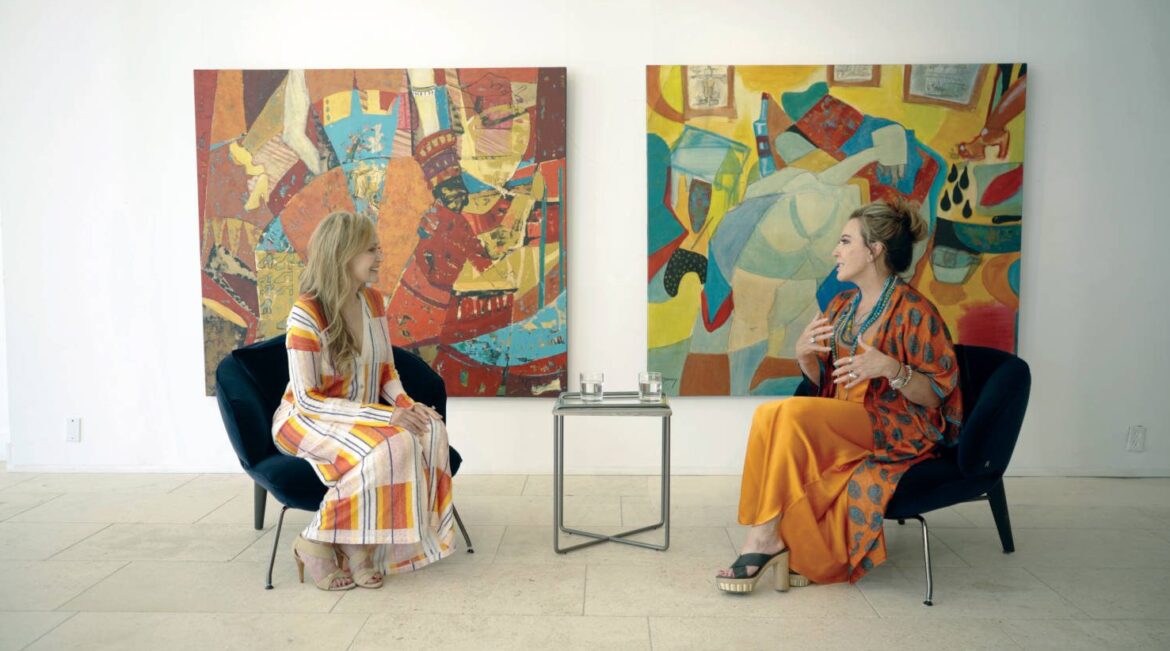DR. CHRISTINA RAHM grew up in a small town but has a big vision, one of providing solutions to the world that help people, animals and the environment. Christina has always excelled at academics, which continues to be a part of her life today. She faced a number of health problems over the years, including Lyme disease and cancer, and has learned to be self-reliant.
Christina holds multiple patents; she is a scientist, inventor, entrepreneur, psychologist, and humanitarian. It is fitting, then, that she uses art in all that she does—the creative process, sparked by a dream, fueled by a desire to give to others, is intertwined in her more technical endeavors. She views art as transient, yet the impact her work has left on countless lives is more enduring.
Christina, thank you for opening your home and your heart. Over the past three decades I have interviewed hundreds of women. Your interview is the first to be covered in two publications. The Art issue interview will focus on your formative years and inherent creativity. The subsequent ELYSIAN Fashion issue will expand to science, environ-ware and the businesses you have built.
Thank you. I appreciate your coming because I know it was a lot.
You are multidimensional, with unique foundational influences. Can you describe your childhood and your family?
My mom and dad met in high school in Campbell, Missouri. My mother’s family-owned farmland. Her mother went to Peabody, Vanderbilt, which was quite unusual for the time. My grandmother’s family was heavily invested in Campbell and I think my mom had a happy childhood. My father’s family moved into town and owned a bakery and a restaurant. His father was a superintendent of schools, and his mother was a Home Economics teacher. They transferred from Murray State to Peabody, Vanderbilt. My parents met at ages 13 and 14 and started dating until they were married. They went to college together. Both parents were really involved in the school. They were good parents. My dad ran hospital systems for the state of Missouri. He was passionate about the Special Olympics. My mom was a classical pianist and cellist and eventually taught school because they lived in a small town. I was a tomboy. While I can’t say I was my mother’s favorite, I think I was my dad’s. I have a sister who is a year older, and a brother about five and a half years younger. We are very close.
When you grow up in a town of 6,000 people, I don’t know how to describe it, but you feel safe. The families all knew each other and my friends from childhood were the children of my parents’ friends. I was very academic in school and an athlete. I was a cheerleader and had a strong group of friends that I remain close to today. I had a solid childhood and I really enjoyed growing up in a small-town environment. I was premature so I had lots of health issues, even as a little kid.
The women of your family were very strong. Tell me about them.
My grandmother had my mother when she was very young, so my great-grandmother raised my mother. My great-grandmother was Cherokee and Choctaw Indian and had married an extremely wealthy man whose last name was Boyd. He was from Ireland and Scotland and had immigrated to the United States. In those times, Cherokee or Choctaw people were treated differently. I remember hearing stories of my grandmother riding in the back of the truck instead of in the front and obviously my great-grandfather did not treat her as an equal. It was a very different environment, and it was in the South. During that period, men were allowed to do whatever they wanted to women, who needed to be strong to survive. They worked hard and eventually owned almost every business in that town, including the grocery store.
Your great-grandmother was beautiful.
She was beautiful. Because my great-grandmother really raised my mom, she was more like my grandmother. Both my grandmother and great-grandmother had children when they were very young. And so, they were extremely close to me. I was very close to my father’s family too. Generationally the grandmothers helped raise the children while the mothers worked. I know it sounds strange, but I was fortunate to have had grandmothers with college educations. Back then, post-high school education was very unusual. In fact, on my father’s side, my grandmother Rahm had nine children; all of whom had college degrees (though I do believe one of the girls died). They were tobacco farmers in Ohio and Kentucky.
Where did the emphasis on education come from?
It was never a question for us to go to college or to get a master’s degree. It was expected. Do you know what I mean? That was part of my heritage. I didn’t realize that everyone didn’t have those educational opportunities. It was just how we were brought up. Now, when I look back at my aunts, I realize what great examples they were. They were debutantes, but they also were strong women who took care of their husbands, ran nonprofits, and helped other women. They were great examples and taught me to be who I am, just by my watching them. It is hard for me not to get emotional about it. They were amazing.
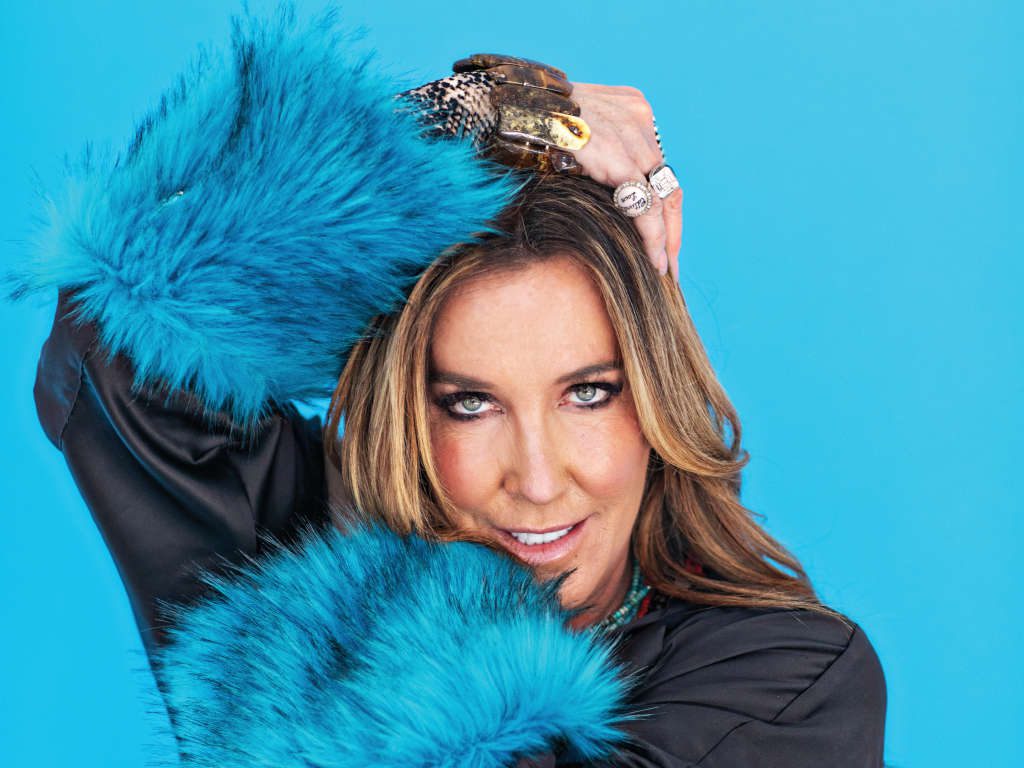
Photograph by Joy Marie Photography / joymariephoto.com
While the women in your family played a strong role in your evolution and self-actualization, you mentioned your health challenges as well.
I was a straight-A student on scholarship. I didn’t have to study because academics came very easy. I was working at Ridgecrest Baptist Conference Center when I contracted Lyme disease and ended up in the ICU. I could not add two plus two. I forgot everything I had learned in science and math, which were my strong subjects even, though I also loved history and English. I am surprised I graduated from college to be honest, because Lyme disease was so debilitating to me. I completely lost my memory. I also came down with meningitis and lost my hair and my eyelashes. I had an IV PICC line at first and then IVs every day to try to get rid of the Lyme disease and to try to help with meningitis. My parents were in Missouri at that time and though they came to take care of me for a little while, I refused to go home. I wanted to keep working. I was devastated during that period of my life. I cried and felt sorry for myself.
My dad had his secretary write me a letter that said that I should stop feeling sorry for myself. He didn’t care if I had hair or not and he could care less if I lost my memory. I am so thankful for that letter now. But at the time, I think I had so much anger.
I was close to my dad, so, when he wrote that letter, I took the anger it caused and harnessed it, and it helped push me forward.
I noticed the colleges you attended early on and now I understand why.
I loved my freshman college. I dated a football player that was a fifth-year senior. My father wanted none of that. He thought boys caused my grades to fall. So, he and Mom made me go where my sister was because she was 14 months older. He wanted her to watch me because she was always the rule follower, and I was the mischievous one.
Why South Alabama?
I ended up at South Alabama because that was where my boyfriend played baseball. I know it will sound horrible, but we had a sorority party with one of the fraternities. We were pulled for drinking on what was a dry campus. The next day I had to meet with the vice president and the dean of students. For whatever reason, and to this day I still don’t know why, he told me I could stay only if I would run for a vice president of Panhellenic and if I would run for Chief Justice of the student government. I also had to work in his office. His name was Dr. Dean Adams. Everyone else received community service.
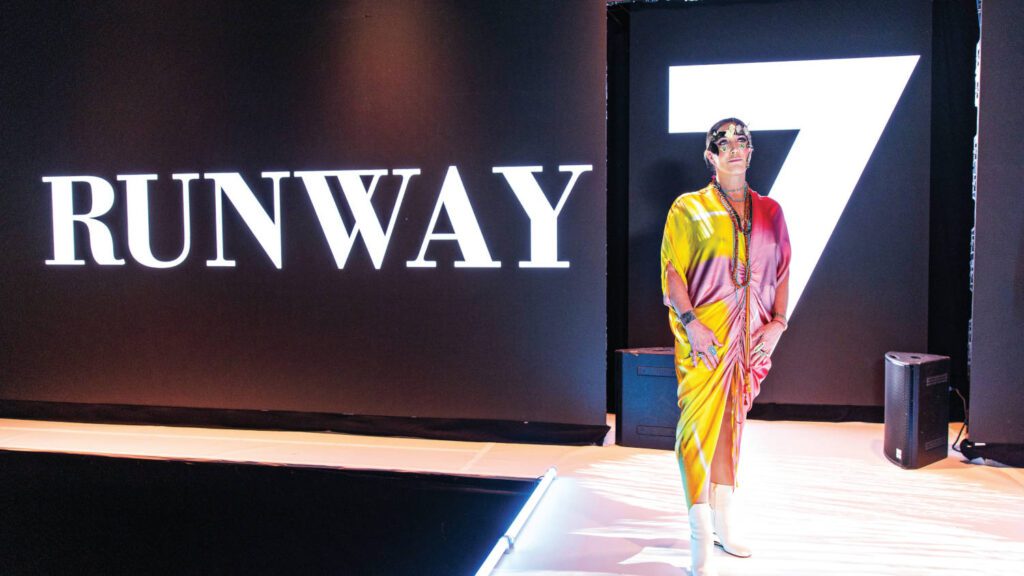
Photograph by Joy Marie Photography / joymariephoto.com
Did you ever ask him?
Yes, I ended up being very good friends with Dr. Adams, his wife . . . as well as leadership at that university. He said that when he read my resume, he saw potential. So, I ran and was elected vice president. The next year I was elected president of Panhellenic and Chief Justice. I also started the Gay and Lesbian Association because I wanted to help, protect, and promote everyone. I did not like it when people in the South treated people differently because of their sexual orientation, and I still don’t. I wasn’t gay and I wasn’t a lesbian, but for me, it didn’t matter. You should treat everyone with respect. I started the freshman advisory council, which is still in existence at South Alabama. I was very involved and active in college.
Do you think people are predestined to illness or is your health a choice?
Fortunately, I am O negative, which is a very strong blood type. I contracted Lyme disease while I was camping at Ridgecrest in North Carolina, in the mountains. I was in a bed of seed ticks when I was bitten. They originally misdiagnosed the bite as one from a brown recluse spider. My temperature spiked at 105-106. It was horrible.
Did it trigger meningitis?
Yes, and I am very thankful that I was in North Carolina. Had I been in a small town like Dexter, Missouri, and contracted Lyme disease, I’m not sure what would have happened. Lyme disease is also more prevalent in North Carolina. Because I was born prematurely, I faced health challenges from the very beginning. I do think that some people are just wired that way. I am also genetically predisposed to cancer.
What kind of cancer have you had?
When I had my oldest son, I had what was called a partial molar pregnancy. Molar pregnancies have serious complications including cancer. I was very sick. I kept getting sick, which is how they found it because I could not stop vomiting. It was just horrific. I chose to have my son. I won’t get into the details, but they didn’t think he would be okay. But he is, thankfully.
If you look closely, you can see a scar here above my eye. I was 25, almost 26 when they diagnosed cancer above and behind my eye. They were worried I would lose my eye. I have had skin cancer and mole surgery.
You experienced other serious health issues from the ages of 20 to 40?
Yes. I have had a brain tumor, a pre-ductal number of pituitary tumors, syringomyelia, melanoma, and squamous basal cell cancer. I have scars on my back . . . and if you look at my nose there is also a scar.
Were your health challenges catalysts for your entry into healthcare?
No; when I was pregnant, I walked in on my husband who was with someone else. It made me understand that I had to support myself.
How old were you?
Twenty-six — and I had another situation happen when I was thirty years old, which retaught me that I did not have anyone but myself to depend on. I had to support my children.
Is that how you began in the more traditional pharmaceutical space?
Yes. I worked for a mobile mental health center, and I ascended in that organization. I started supervising people at a very young age as a psychologist.
Was that the impetus for your Master of Science in rehabilitation and counseling?
Yes, I studied both. I studied psychology and did work in a methadone clinic to help pregnant women that were on methadone. They would overdose because they would take methadone on the street. I worked with the seriously persistent mentally ill, sexually abused children and pedophiles. I ended up doing intakes. Sometimes I would do 40 intakes in one day because I supervised so many people. I had a beeper I carried at the ER. At the time I had a newborn baby. I still remember when I realized that career could not be my professional path.
Was the rapid fire of what you witnessed emotionally taking its toll on you?
It was honestly too much for anyone to witness. I couldn’t sleep because I was exposed to horrific sexual abuse of children. It was hard for me to understand. In graduate school, I was selected to be part of an experimental program in the state of Alabama where we served as mentors working with gang members. The program was in Pritchard, a very rough area.
I prosecuted those types of cases, so I understand both the desire to help and the ramifications. How did it affect you and what specifically was your focus?
I couldn’t sleep. When I was 25, I started working as a house parent in college with sexually abused kids. Before that point, I was the life of the party.
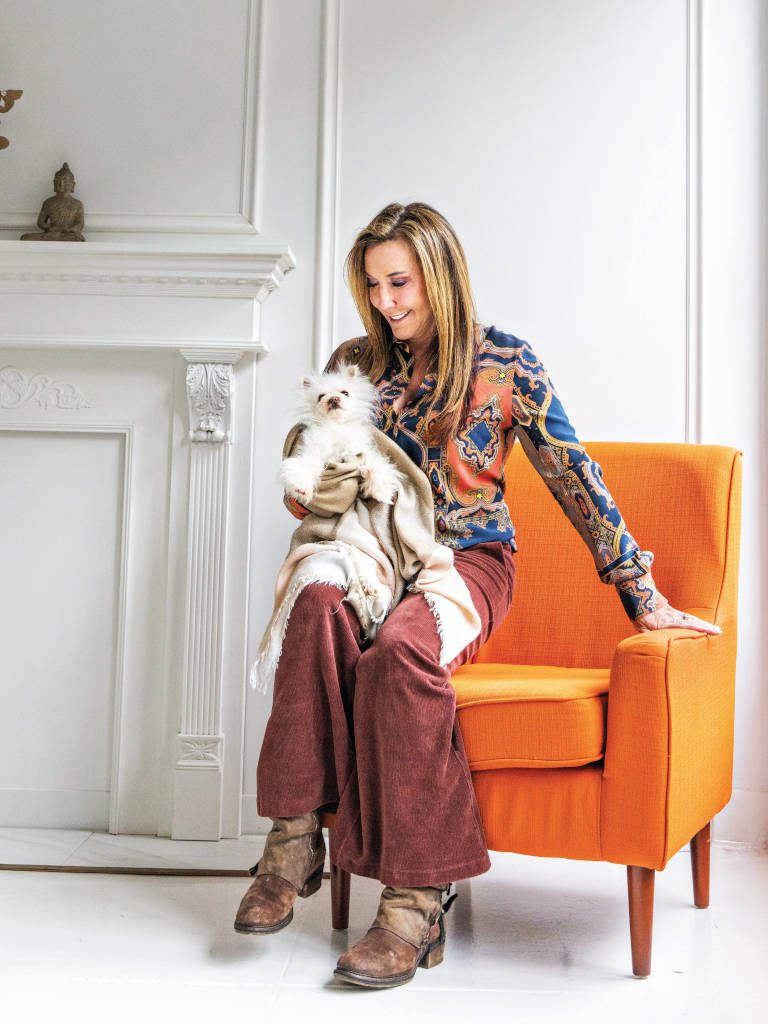
Photograph by Joy Marie Photography / joymariephoto.com
Did you always maintain regular sleep and exercise?
Yes. Though sleep has never been great for me. I can get by with three or four hours, but then I will crash. I am not a sound sleeper because I have an internal drive to get things done. Exercise, by contrast, is something core to my life and important to me. Almost all women that are wired like me have a hard time sleeping. It started when I was in college. If I needed to solve problems, it came at the expense of sleep. Sometimes I problem-solve in my dreams. Many formulas and other things I’ve created came from dreams.
Do you wake up in the middle of the night problem-solving?
Yes. I always have an off-and-on switch. If I write things down, I can go back to sleep. If I don’t, I can’t. It is not good for me to check my phone. We are in almost 80 countries, so I do check my phone a couple of times during the night. Once I had children I was also always worrying. I always wanted to make sure they were okay. I was never the kind of mother that could sleep. From their birth, I slept with my babies in bed with me which made me get used to not sleeping.
Were you in school at the time?
I don’t know if there has ever been a time since that I have been completely out of school. Even now I am working with a couple of universities in Africa developing a medical department and helping teach.
You were working at Mobile Mental Health Center and would fly to the University of Sarasota in pursuit of your doctorate, then what happened?
I was raised in a home where my grandparents and parents were always giving back to the community; my parents were foster parents and heavily involved in Special Olympics. Philanthropy is an important part of who I am and what I want to do in life, so I started writing grants.
The grants I wrote benefited sexually abused kids. I think it distracted me from the horror of what they were going through, and I wanted to get money for them. I thought it was important.
I wrote a grant to National Institutes of Mental Health, which was part of National Institute of Health, with Dr. Bill Anthony and Dr. Sally Rogers. Harvard, Yale, and Boston were included. I had written many local grants successfully; they were always accepted. I was so naive. I know this sounds horrible, but I was so used to them being accepted, I could not understand what happened. I called them many times and finally, they called me back.
“We don’t give someone a grant that is not with a university and that does not have experience working with governmental programs,” they said. “What can I do?” I asked. They said, “You can come meet with us,” which I did. They connected me to Bill Anthony who took me under his wing. I was one of the youngest research directors for that grant. I moved up just as I had with social services. But even with grant writing, I needed more money to support my kids. I started with a master’s degree at $18,000 which increased to $32,000. But it just was not sustainable. I did a talk for women with depression and one of the business managers from Pfizer heard it and I was asked to an interview.
Is the moral of the story, never give up?
Yes, and that runs deep, literally. In high school, I ran long- distance track. At the first track meet, I had to stop behind the field house and get sick. I came out and finished the race. The next time we raced, I had in my mind I would win, despite the first race, when I got sick, I won. I won until I went to state. I really don’t think I’m a good athlete, but I just don’t quit. When I felt I couldn’t get up in the morning, when I had full blown Lyme disease or cancer I just did it anyway. I think it is one of the most important things in life.
I want to delve into your creativity . . . what are your passions?
I love travel, art, design, music, fashion. I love experiencing new things, seeing different styles. I find everything is artistic and I love beauty. Food art, right? I had an idea, and that was to touch art, music, and humanities. At the time we were only doing health, wellness, science, and medicine. But I really wanted to move into a world of creativity because it makes me happy. Art brings people together, and creative minds also seek solutions and care deeply about the environment. Creative people also care about people.
What do you want to be remembered for?
I really want to be remembered for providing solutions to the world to help people. I want to be remembered as someone that supports and helps women, men, and does the right thing. The biggest issue for me is not to be remembered for my accomplishments. I would rather be remembered as someone that really tried to make positive change. When I was younger, I thought politics was the only way make to make significant change. As I became older, I realized there were other ways to make a difference. It is important to me that I make positive impacts, which is more important a legacy than money. I do want to ensure a legacy for my children so they can carry forward this work.
How do you start an artistic endeavor?
Usually I begin dreaming about what I am going to paint or design. Because I use art in almost everything that I do.
You are a pure innovator and creative.
I am.
Someone coined you a creative genius or savant. Is that divine?
I think it is divine. It was something I never worked at, but just happened. I’ve always known certain things, but I always say that it is the artistic side of me and the divine influence in my life that I have had since I was a little girl.
What is that responsibility like?
For me it’s, it’s humbling because I believe it was given to me to use to help people in the world. Even when I had cancer it made it even stronger for me because I understood that I had a gift that I finally realized other people didn’t really have. It hit me. My parents always called me special, which I felt was not a compliment. I was different and felt out of place, which happened a lot in my life. I realized it was a gift where I can help people, and I take that very seriously. The artistic side of me really made me a little bit more serious when I finally realized that I thought and did things differently than other scientists and other people in business.
You just kind of intuitively know it. It comes at such a granular level, and it begins in sleep.
It begins in sleep or sometimes when I’m sitting somewhere I will know something, and I know it instinctively a hundred percent or I know what I need to do or create or even about someone in the room. I have experienced this since I was a little girl. I didn’t understand that everyone else around me didn’t have the same feelings or same thoughts or knowledge. I didn’t know.
I have watched you in groups of people and you naturally gravitate to the loner. Why?
That is so interesting you would say that because the principal at my daughter’s school told me when she was little that she did that… as do both my sons. Coincidentally, all three of my children have the same characteristic. It is a feature I must have passed on to them. I love people. I don’t like being in a room and feeling someone is being treated as an outcast or less than someone else. That really bothers me. Even in high school I always gravitated toward people that were being hurt or whom people were making unkind comments about. I just felt a connection with those people.
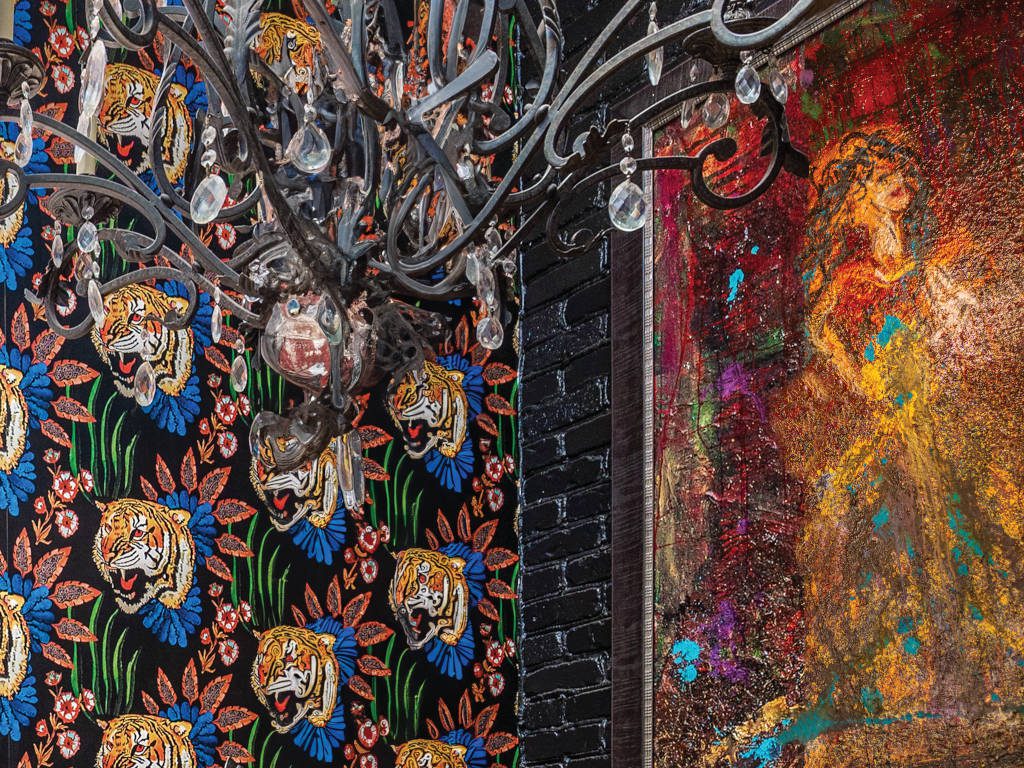 When you had cancer did you ever think you would die?
When you had cancer did you ever think you would die?
I knew they said I might die. But I felt like I had a longer purpose. I felt like my life wasn’t over and I felt that there was this long path ahead of me … things I needed to do. I was going to beat what was happening and continue to because the cancer comes back multiple times.
I have seen your artwork and it comes to you with a thought or through a dream?
My happy place is to create art. My passion is art, because when I’m creating, I feel it is something I can give or share with people. I don’t feel what I create is ever mine. I never feel I own it, which has led me, many times in my life, giving things I have made to the world and not owning them, and not being a part of it. There are some things that I worked on and created that mention my name. Creating art leads me to a very happy, almost euphoric space, where I’m completely content and at peace.
Do you think your Native American heritage is the source of those feelings? The idea that no one really owns anything or anyone.
Definitely, I don’t feel like anything I buy, even the home I live in, is mine. When I travel, if someone comments on an article of clothing or accessory, I give it away. I don’t feel like it’s mine. I do feel a need to leave some things for my children so that they have a part of me. I have an underlying belief that energetically we are all connected. It’s not just based on science, it’s spiritual for me. And so, you’re right, I don’t feel like I own anything.
Your art is stunning; I am curious how you self-define your artistic style . . .
Most of my art is in my house or the office. I have given a great amount of my art away, though we did auction some pieces.
I take dirt or sand from the ocean and sprinkle it over either acrylics, oils, or watercolors. I even will use things from my kitchen in my art. There is a huge painting in my house of a lady dancing on a table with a long dress and a hat. It is very unusual and complex. Under all my paintings, I write a story around the picture or behind the picture. I write things on the back of the picture as well. I write about, honestly, female empowerment. Most of my artwork is of women. And if you ask me why that is, I don’t know. It is just what I would like to create.
What is your point of origin when you create something?
Humanity. I believe that I pivot to and am drawn to whatever is best for humanity and what can be created. What you read in a textbook does not create innovation. It is a foundation that you can learn from. If you read a textbook, you cannot create or innovate a sustainable future. Everything is connected: land, air, water, and man. It’s simple to me. I create for the betterment of future sustainability and not just now. And I see everything, even the paintings that I create, as transient. If the paintings were destroyed or used for something else, it wouldn’t bother me at all.
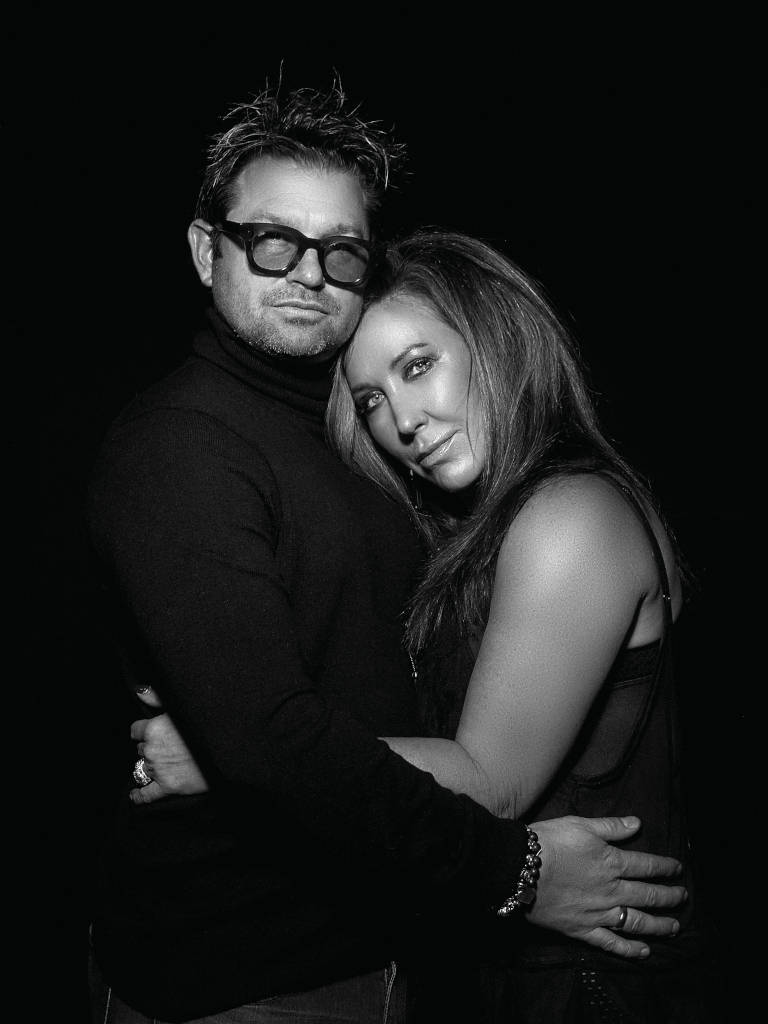
Photograph by Joy Marie Photography / joymariephoto.com
Can you give me one piece of advice that you would give a “younger you” that would have made a difference in your own life?
You don’t have to be what everyone else wants you to be. You don’t have to get married; you don’t have to have kids. I’m very thankful I got married and have kids. But I would tell myself, you can wait. You can make your own decisions. You don’t need your mother or grandmother to tell you who you will become. You need to be you and with that comes mistakes and forgiveness. Mistakes because they are part of life. Use it as an example to be better. I grew up feeling such guilt and was always worried. If I would have been told it would all work out and be okay, that I would fail constantly and be better because of it, it would have been different. I thought something was wrong with me. I thought I had to be perfect. I thought that, I really did. So, I would say to my younger self, you need to be you.
How old were you when you realized that?
Not long ago. How bad is that? Do you know who caused me to realize that? My husband Clayton.
Because of his unconditional love?
While I love my mom, dad, sister, and brother, Clayton doesn’t expect me to be perfect. I think he is probably the first person. But he doesn’t care about perfection and that is a gift.

